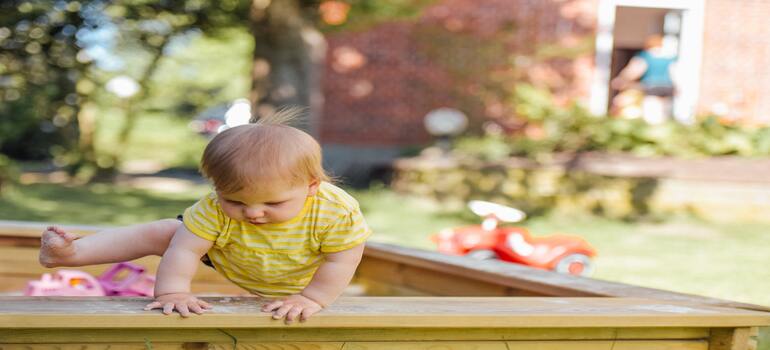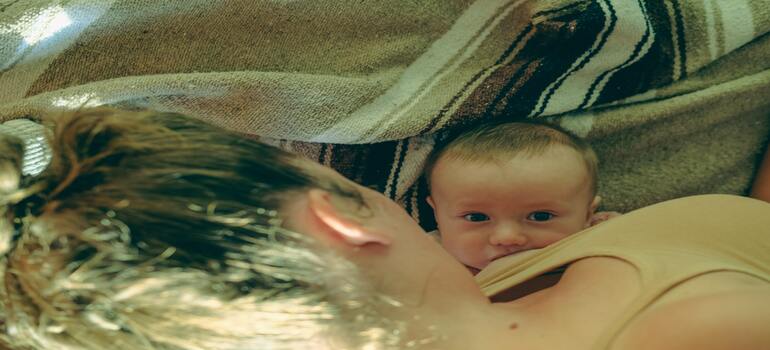Getting Your Kids To Chew Their Food
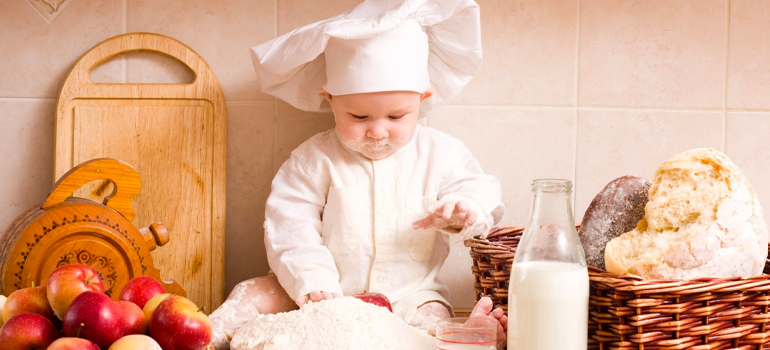
- October 15, 2020
- Dr. Hetal Dave
Mouth Development & Oral Awareness in Young Children
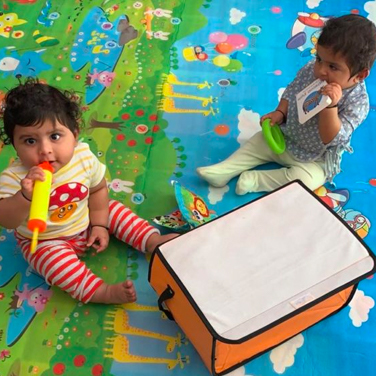
Has your baby or toddler ever filled her mouth with blueberries - one after the next - without chewing and swallowing? Perhaps she stores them in her cheeks or at the roof of her mouth and you find food a few hours later!
Is this normal?
Is it behavioural?
Is this a sensory processing issue?
This question comes up almost daily in my practice as an Occupational Therapist In short, food pocketing and stuffing can happen when children are eating too fast and haven't mastered chewing skills, but if pocketing becomes a persistent issue despite using the preventive measures listed in this post, it may be time to seek professional help. To understand why your child may pocket or overfill their mouth, let’s briefly discuss oral development. Starting at birth, we want your baby to learn to soothe herself by placing her own hands into her mouth. By doing this, she learns the landscape of her mouth. This type of self-soothing with hands is comforting to babies and is exactly what we want them to do! Your baby eventually learns how to bring toys further into her mouth and learns to gum and teethe on these safe teething toys. This is a developmental milestone that should be encouraged. She first learns where her mouth is, and then she learns about the boundaries within her mouth, such as the tongue, the hard palate and the back of her mouth. Your baby will also learn to open and close her mouth around toys and her hands, and she soon learns that placing a toy straight back in her mouth may cause her to gag. She also learns when her mouth is too small for a large toy. In the OT world, we call this mouthing and the development of oral play skills. This is exactly what we want to see babies doing before 6 months of age.
- Be your child’s speed bump - help her slow down her pace of eating by offering only one or two pieces of food on her tray or plate. If she's old enough, give her the option of serving herself with small spoons, getting just one blueberry at a time.
- Offer frequent sips of water from an open cup or straw cup. Model drinking water with meals yourself. This will help your child wash down food and will slow down her pace of eating.
- Novelty utensils like fork as well as blunt toothpicks, require more fine motor control and will slow her eating speed.
- If the food is a bread product, use cookie cutters to make various sizes that may feel different when she take bites.
- Older toddlers may understand taking different size bites. Ask your child to take a mouse-sized bite, then a dog-sized bite, then a dinosaur-sized bite. Work with various sizes until she understands that she can control how much food goes into her mouths by the bites she takes.
- Talk to each other at mealtimes and encourage other language skills - don’t just talk about chewing the food. Yes, sometimes we need to remind our children to chew and take sips of water, but we also want them to remember that mealtime is a positive experience. Model and imitate safe, slower eating skills and take sips of water yourself.
- Make sure that your child isn't watching a device or TV during mealtimes, as this can promote mindless eating.
- Ask yourself if you're pressuring your child to eat - sometimes kids’ stuff food in their mouths because they're required to take a certain amount of bites (perhaps to "earn" dessert) but really don't want to eat that food.
Your child's mouth is already overstuffed with food - now what?
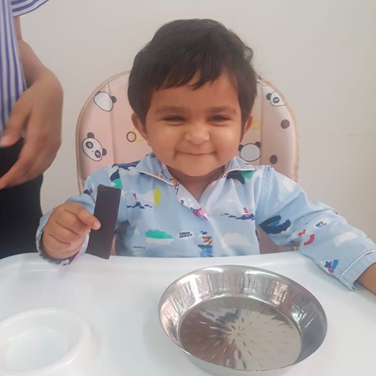
While prevention is key with overstuffing, if stuffing happens it's critical to manoeuvre food out of her mouth safely.
1. Encourage your child to chew, but if she won't ask her to spit out the food, take a sip of water, and start over.
2. Offer her a small bite as her next bite and use the strategies listed above.
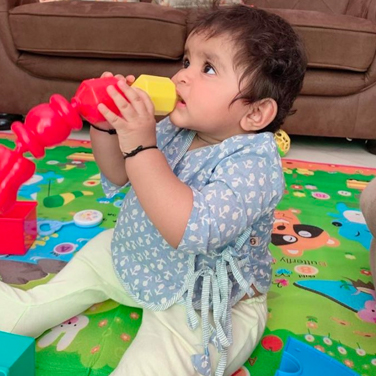
When to Seek Professional Help?
If you regularly find food stored in your child's mouth minutes to hours after a meal, it may be time to seek professional help. While it can be behavioural, food stuffing may also be a red flag that your child is not chewing her food and may not be feeling the food within her mouth. A lack of oral sensation can lead to stuffing because excess food helps your child understand the boundaries of her mouth better. She may seek out crunchy or chewy textures or may crave highly flavoured foods (spicy, sour) to "wake up" the oral sensations within her mouth. This behaviour is concerning to feeding professionals and may require therapy.
Speak with your paediatrician and seek professional help for your child if this is a persistent problem.
I would recommend scheduling an assessment with a Feeding Specialist (either an Occupational Therapist {OT} or a Speech Language Pathologist {SLP}) who has specialized training in oral/mouth development. If your child is regularly pocketing food, please always do a mouth check before she leaves the table, as this can be a safety and choking concern.
Published by
Dr. Hetal Dave
7 Articles
Dr. Hetal Dave is a Paediatric Occupational Therapist working in the field of Paediatrics with an experience of over 6 years. She has a special training in treating kids with Autism Spectrum Disorder from Com DEALL,...
Read MoreShare with your friends!
Leave a Comment
Trending Post
Myth Buster: Having iron tablets makes your child...
Busting Top 10 Pregnancy Myths about having Iron Tablets
One of the Top 10 pregnancy myths is that...
Health Benefits of Pomelo For Moms To-Be & Kids
During pregnancy, women need proper nutrition to support their health as well as the growth of the...

